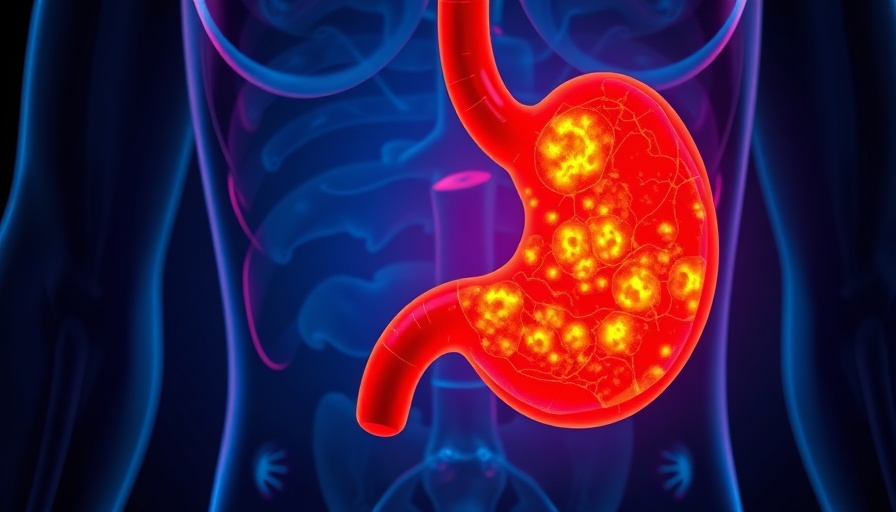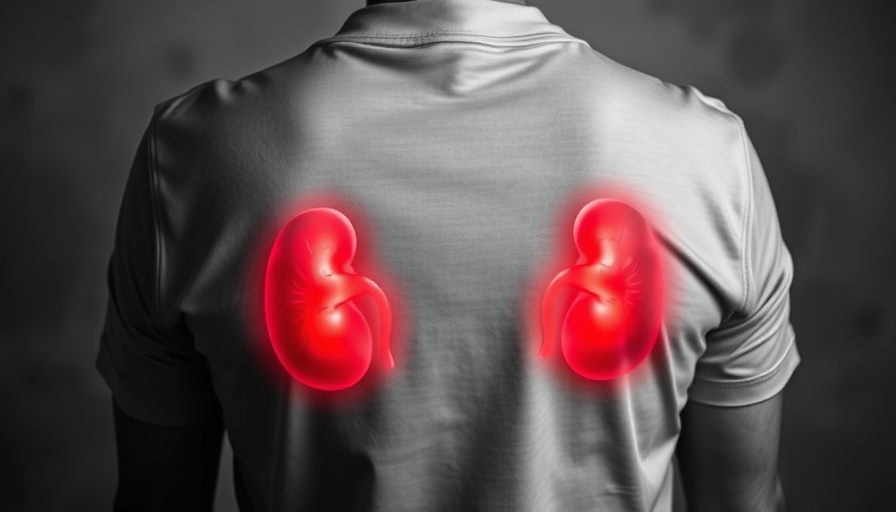
Understanding CAR T-Cell Therapy: A Game Changer for Gastric Cancer?
Recent advancements in the medical field are paving the way for innovative treatments that extend the lives of patients with advanced cancer. One such breakthrough is the use of chimeric antigen receptor (CAR) T-cell therapy, particularly for those battling advanced gastric cancer with Claudin-18 isoform 2 (CLDN18.2) positivity. In a pivotal study, satricabtagene autoleucel (satri-cel) has shown significant promise in improving progression-free survival (PFS) compared to traditional treatment options.
Why CLDN18.2-Positive Cancers Matter
Claudin-18 is a tight-junction protein that is overexpressed in specific types of gastric and gastroesophageal junction cancers. Understanding the biology of cancer cells and their unique markers, like CLDN18.2, is critical. Since many patients face a grim prognosis after exhausting conventional therapies, targeted treatments using CAR T-cell therapy represent a beacon of hope. This therapy empowers the immune system to directly attack cancer cells, leading to a more effective and personalized approach to treatment, especially for those with advanced stages of the disease.
Breaking Down the Study's Insights
The clinical trial in question involved 156 patients who were resistant to at least two prior lines of treatment. Participants were randomly assigned to receive satri-cel or treatment of physician's choice (TPC). The results were notable: those receiving satri-cel had a median PFS of 3.25 months, more than double that of the TPC group, which reported only 1.77 months. This outcome indicates that CAR T-cell therapy provides a substantial benefit for patients.
How Safe Is CAR T-Cell Therapy?
Despite the promising results, safety concerns cannot be overlooked. The trial reported that all patients in the satri-cel group experienced treatment-emergent adverse events. Notably, grade 3 or higher adverse events were prevalent, signaling a need for cautious administration. For patients and families, understanding these risks is as crucial as knowing the potential benefits.
The Broader Implications for Cancer Treatment
Satricel's favorable outcomes open the door for discussions around CAR T-cell therapies in other cancers as well, demonstrating a shift toward more personalized medicine. As we explore cancer treatments, the focus on genetic and molecular profiling is becoming increasingly relevant. This paradigm shift may encourage broader applications of immunotherapies across various malignancies.
Patient Perspectives and Real-Life Impact
For patients facing advanced gastric cancer, insights like those gained from the satri-cel study can significantly impact their treatment choices. Stories from individuals who have experienced CAR T-cell therapy firsthand emphasize a common sentiment: the importance of exploring every possible avenue in the fight against cancer. Many patients report a renewed sense of hope after considering innovative treatments.
Embracing Hope Through Innovation
At the heart of this discussion lies a pivotal question: how do we harness innovative treatments to benefit as many patients as possible? Continued research and openness to exploring new therapies could ultimately lead to improved patient outcomes and lives.
Call to Action: Advocate for Your Health
If you or a loved one is facing a cancer diagnosis, remember to stay informed. Explore the options available, including clinical trials for cutting-edge therapies like CAR T-cell treatment. Your health journey deserves the best possible support and information.
 Add Row
Add Row  Add
Add 



 Add Row
Add Row  Add
Add 
Write A Comment